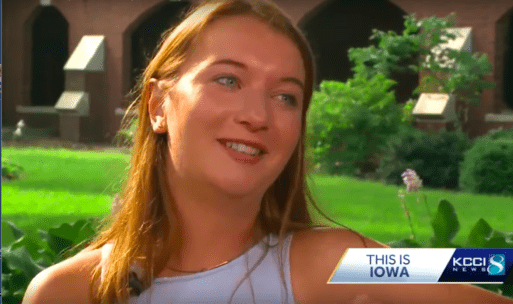
When Dale Schroeder died in 2005, his obituary stated he had no descendants. Yet last month — 19 years after his death — 33 doctors, teachers, therapists and other professionals who have come to call themselves “Dale’s kids” gathered to honor his memory and the legacy he left behind. Though Schroeder never met any of them, he bequeathed each a college education.
Schroeder’s friend, Steve Nielsen, describes the benefactor as a “blue-collar, lunch pail kind of guy” who was known to mostly wear either work jeans or church jeans. As a result of his strong work ethic and job as a carpenter at the same Des Moines business for 67 years, this man who grew up poor and had no wife or children of his own managed to save a fortune.
According to Nielsen, when the time came to plan his estate, Schroeder told his lawyer, “I never got the opportunity to go to college. So, I’d like to help kids go to college.” Much to Nielsen’s surprise, Schroeder had saved over $3 million to do just that.
Fifteen years and 33 college graduations later, the money is tapped out. Kira Conard was the last college graduate to receive one of Schroeder’s scholarships.
Conard had originally ruled out achieving her dream of becoming a therapist. Her single mom could not afford to send her or her four sisters to college. She recalls getting a phone call from Nielsen four years ago, during her high school graduation party. He mentioned Dale Schroeder’s name and told her about his instructions to use Schroeder’s money to send small-town Iowan kids to college.

Kira Conrad, the last Iowan students to receive Schroeder’s scholarship
Credit: youtube
“For a man that would never meet me, to give me basically a full ride to college, that’s incredible,” Conard told CNN.
Still, the generous college bucks may not necessarily be stopping there. The entire group of Schroeder scholarship graduates gathered together to honor him in July. Standing around his old lunch box, Nielsen was also there to address the group.“All we ask is that you pay it forward. You can’t pay it back, because Dale’s gone. But you can remember him and you can emulate him.”
Paying It Forward
Even if “Dale’s kids” cannot yet afford to endow a personally named scholarship, there are other ways the award recipients can pay their gratitude forward, according to a blog on the Scholarship America website. The organization offers three suggestions: Contribute to a local or national fund that addresses the college affordability crisis. Support the scholarship component of a cause the recipient cares about in their own community that’s aimed at helping a designated group of students. (Schroeder chose low-income Iowan students who aspired to go to college). Or think outside the box to less traditional venues. For example, a college may have an emergency financial aid fund that provides small grants to students who find themselves at risk of dropping out due to sudden or unexpected financial crises.
 The need for Schroeder’s brand of generosity has never been greater. A new study from the National College Access Network reveals that “75 percent of [public, four-year residential] institutions are not affordable for the average low-income student who receives federal, state, and institutional grant aid, takes out loans, has a Federal Work-Study job (or similarly paid part-time work), pays an EFC, and works full-time over the summer.” Thus, even low-income students who are doing everything right — maximizing their grants, working a reasonable amount, taking out prudent loans — will still find it nearly impossible to pay the full cost of attendance at the wide majority of four-year universities.
The need for Schroeder’s brand of generosity has never been greater. A new study from the National College Access Network reveals that “75 percent of [public, four-year residential] institutions are not affordable for the average low-income student who receives federal, state, and institutional grant aid, takes out loans, has a Federal Work-Study job (or similarly paid part-time work), pays an EFC, and works full-time over the summer.” Thus, even low-income students who are doing everything right — maximizing their grants, working a reasonable amount, taking out prudent loans — will still find it nearly impossible to pay the full cost of attendance at the wide majority of four-year universities.

 Frugal Carpenter Dale Schroeder Sent 33 Strangers to College
Frugal Carpenter Dale Schroeder Sent 33 Strangers to College


 “Help Me, Helen”
“Help Me, Helen”

 “As Tears Go By” by Marianne Faithfull
“As Tears Go By” by Marianne Faithfull














